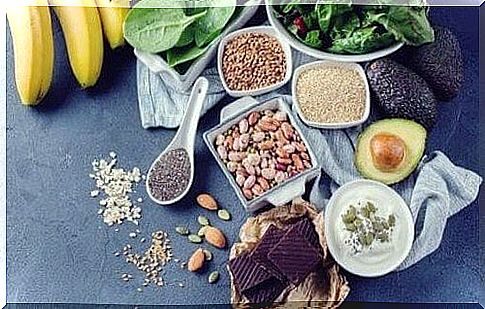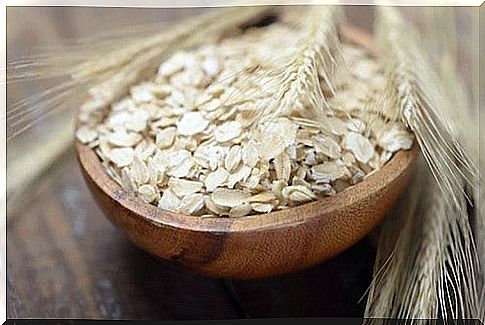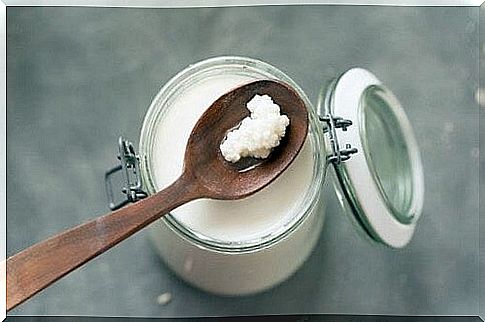Antidepressant Diet: Eat Well To Feel Better

The antidepressant diet does not affect any psychological disorder to the point of making it disappear. However, nutrition is also part of a multidisciplinary approach, which every patient needs. Consuming anti-inflammatory foods, rich in antioxidants and vitamin C, an essential part of the antidepressant diet , can undoubtedly help us improve our emotionality and our well-being.
Mark Twain used to say that the only way to stay healthy is to eat what we don’t want, drink what we don’t like, and do what we prefer not to do. It almost seems that feeling good and enjoying an adequate inner balance does not go along with the pleasures of the table. Nonetheless, good nutritionists and psychologists claim that this is not true.
The simple truth is that we eat poorly. There comes a time when our spectrum of culinary interest becomes the same as that of an 8 year old. We prefer things that are prepared quickly and that generate that pleasant euphoria of carbohydrates, salt and sugar. To this we must add another factor: the poor quality of food. The arable fields are composed of a soil that lacks adequate organic matter. In addition, the massive production of fruit and vegetables, in addition to not benefiting the soil, causes a loss of the main nutrients of the product itself.
A deficient and inadequate diet has a strong impact on our well-being. We must therefore integrate any psychological and / or pharmacological treatment with proper nutrition. In the long run you will notice the results.

Does the antidepressant diet really work?
In 2017, various universities in Australia and New Zealand conducted a series of studies in collaboration with different hospitals. Their work was published in the medical journal BCM Medicine . The aim was to find out if the antidepressant diet affected the patients diagnosed with this disease. The results were positive. After 12 weeks the effects began to be seen.
The relationship between mood and nutrition is an emerging field known as nutritional psychology. In addition, it is increasingly scientifically evident that what we eat profoundly affects our emotions and our well-being. It is worth keeping this in mind and perhaps taking some notes on the characteristics of the antidepressant diet.
1. Whole grains
Whole grains are an exceptional source of vitamins, minerals, dietary fiber, antioxidants, and phytonutrients. Some of them, such as brown rice, oats or buckwheat, provide more than adequate amounts of tryptophan. Tryptophan is an essential amino acid that allows us to synthesize serotonin, the hormone of well-being and happiness.

2. Green leafy vegetables
Green leafy vegetables are an indispensable part of the antidepressant diet. When we think of these vegetables, spinach is one of the first options that comes to mind. They are not the only ones, however. We also remember watercress, broccoli, chard, black cabbage, etc.
These vegetables are very nutritious and with their contribution of antioxidants, vitamins B, C and folic acid, they allow us to reduce stress and anxiety.
3. Blue fish
The university study cited predicted a consumption equal to two or three times a week of blue fish. There are countless options in this regard: salmon, tuna, trout, herring and mackerel are all part of this family.
The main benefit for people with depression are omega 3 fatty acids, which are present in large quantities in these fish. In fact, these long-chain polyunsaturated fats are exceptional neuroprotectors.
4. Chicken and turkey
The antidepressant diet excludes red meats and favors lean ones, including chicken and turkey. They are rich in protein and contain an amino acid called tyrosine, which allows us to increase dopamine levels in the blood. If we cook these meats on the grill with a little lemon and olive oil, the benefits will be incredible.
5. Beta-carotene
Carrots, pumpkins, tomatoes… All red or orange colored vegetables contain beta-carotene. It is an essential nutrient that is converted in our body into the precursor of vitamin A. Thanks to this component, our body enjoys an adequate internal balance. In addition, it improves circulation, we fight free radicals better, improves our mood and calms headaches.

6. Nuts
Walnuts are an indispensable element of the antidepressant diet. Every day, during breakfast, we can eat between 4 and 6 nuts. In general, most nuts are highly beneficial for emotional disturbances. Lomega 3, vitamin E, powerful antioxidants and zinc act as strong neuroprotectors and well-being mediators.
7. Probiotics
One of the best probiotics we can take is kefir. Its lactose level is low and, more importantly, it protects and strengthens the intestinal flora. One factor that we cannot overlook is that much of the serotonin is not produced by the brain, but by the digestive system. It is therefore very important to have a strong and healthy intestinal microbiota that acts as a mediator in this process.
The bacteria present in the intestine promote digestion and ensure adequate absorption of the nutrients we introduce into the body. In addition, their activity affects our emotional and sensory cognitive functions. A little kefir for breakfast along with some fruit can work wonders over time.

If you suffer from depression or any other psychological disorder, it is appropriate to eat a varied and healthy diet. This will not eliminate the problem, but it will create the organic conditions necessary for the care and treatment process to be optimal. In addition, it will allow us to feel better and allow the brain to have the compounds it needs to produce more serotonin and dopamine.
The effort will always be worth it.









